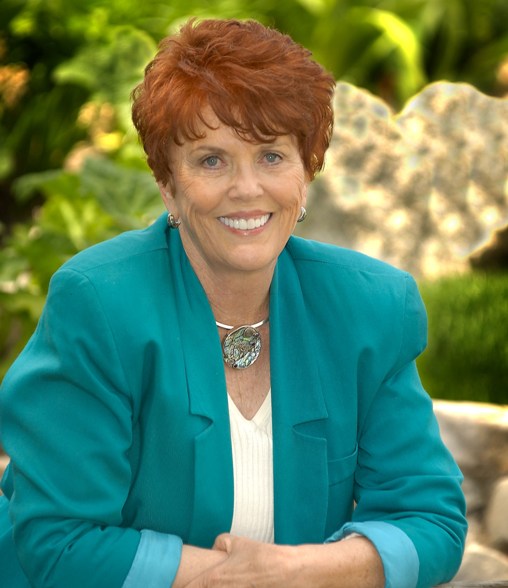WHat is Positive Discipline?Positive Discipline is a program developed by Dr. Jane Nelsen. It is based on the work of Alfred Adler and Rudolf Dreikurs and designed to teach young people to become responsible, respectful and resourceful members of their communities. Positive Discipline teaches important social and life skills in a manner that is deeply respectful and encouraging for both children and adults (including parents, teachers, childcare providers, youth workers, and others). Recent research tells us that children are hardwired from birth to connect with others, and that children who feel a sense of connection to their community, family, and school are less likely to misbehave. To be successful, contributing members of their community, children must learn necessary social and life skills. Jane Nelsen gives the following criteria for effective discipline that teaches: FIVE CRITERIA FOR POSITIVE DISCIPLINE
The Positive Discipline Parent Education and Classroom Management models are aimed at developing mutually respectful relationships. Positive Discipline teaches adults to employ kindness and firmness at the same time and is neither punitive nor permissive. The tools and concepts of Positive Discipline include:
Unique characteristics of the Positive Discipline Model also include:
| The Positive Discipline Association receives a 5% donation for all purchases made at www.positivediscipline.com |
About the Founders of Positive Discipline

Dr. Jane Nelsen
"In 1969 I felt like a failure as a mother. I would be authoritarian until I couldn't stand myself. Then I would be permissive until I couldn't stand my kids. I was a senior in college majoring in Child Development and felt discouraged as I became aware of ideals for children and parents. Unfortunately, the books that explained these ideals did not give much help on how to accomplish them.
In my last semester of college, I enrolled in a class where the instructor, Dr. Hugh Allred, explained that we would not be learning a bunch of theories but only one theory (Adlerian Psychology), which included practical methods to help children learn self-discipline, responsibility, cooperation, and problem-solving skills. I was hopeful about this possibility, but even more gratified to find that the Dreikurs/Adler methods were effective in spite of my yes, but attitude.
I became so excited about my own success that I wanted to share these methods with others. I started as a parent study group leader with friends in my neighborhood and then with parents of educationally and emotionally handicapped children (my MA thesis project) and later became the Director of Project ACCEPT (Adlerian Counseling Concepts for Encouraging Parents and Teachers) in the Elk Grove School District. This was a federally funded, Title IV-C project. Our purpose was to show that children would improve their behavior when parents and teachers attended study groups to learn more effective ways of working with children in homes and classrooms. The results showing improved behavior were statistically significant at the .001 level, so we were awarded funding for three more years to teach other interested school districts how to adopt this program.
The book we were using in this project went out of print, so in 1981 I sat down and quickly wrote another one based on what I had been teaching and learning from other parents and teachers. The book was written in two months and self-published in a format with so many mistakes it would make you laugh today. Thus, Positive Discipline was born. Who would know that what people now think of as Positive Discipline would evolve from such an innocent decision?"
 Lynn Lott
Lynn LottIn 1969 when my first child was six months old, I picked up a book called Children: The Challenge by Rudolf Dreikurs and it changed my life. At that time, there was a group of volunteers leading parenting classes to study the ideas in that book. I took one of these classes, became a volunteer leader, and have been teaching parenting and relationship skills ever since. Though I came to Positive Discipline as a parent, it wasn’t long before I was using the ideas in multiple settings, including my private practice as a therapist.
In 1973, I founded an Adlerian organization in northern California. That organization evolved into the Family Education Center where I ran a weekly parent education/family-in-focus program for thirteen years. As parents in the program became more involved and skilled, I created an internship program to teach them how to be parent educators and counselors. The interns learned how to teach experientially, based on what I had learned from John Taylor, so that their parenting groups would be more interesting and effective than the first one I took back in 1969. I created the Parents Helping Parents Problem Solving Steps so that new students would have a map to use when they counseled parents using the open forum model introduced by Adler, Dreikurs, Christensen, Walton, Platt and others. The open forum included working with volunteer parents, teachers, and/or families in front of an audience. Watching this magical method closely, I could see what these master Adlerians did and turned the magic into steps that others could follow. In the summer of 1987, my students and I created the first Teaching Parenting Manual for others to use."
A HISTORY OF POSITIVE DISCIPLINEThe Positive Discipline Parenting and Classroom Management Model is based on the work of Alfred Adler and Rudolf Dreikurs.* Dr. Adler first introduced the idea of parenting education to United States audiences in the 1920s. He advocated treating children respectfully but also argued that spoiling and pampering children was not encouraging to them and resulted in social and behavioral problems. The classroom techniques, which were initially introduced in Vienna in the early 1920s, were brought to the United States by Dr. Dreikurs in the late 1930s. Dreikurs and Adler refer to the kind and firm approach to teaching and parenting as democratic. In the 1980s, Lynn Lott and Jane Nelsen attended a workshop facilitated by John Taylor.* Lynn began training interns to teach experientially and wrote (with the help of her interns) the first Teaching Parenting Manual. Jane was the director of Project ACCEPT (Adlerian Counseling Concepts for Encouraging Parents and Teachers), a federally funded project that had received exemplary status while in its developmental phase. Jane wrote and self-published Positive Discipline in 1981. It was published by Ballantine in 1987. In 1988, Jane and Lynn decided to collaborate on the book which is now titled, Positive Discipline for Teenagers, and began to teach parenting and classroom management skills experientially. Lynn and Jane also wrote Positive Discipline in the Classroom and developed a manual filled with experiential activities for teachers and their students. In the years since, Positive Discipline series has grown to include titles that address different age groups, family settings, and special situations. Positive Discipline is taught to schools, parents, and parent educators by trained Certified Positive Discipline Associates. Community members, parents, and teachers are encouraged to become trained facilitators and to share the concepts of Positive Discipline with their own groups. Positive Discipline parent education classes are taught across the country, and Positive Discipline is successfully used as the classroom management model in private, religious, and public elementary schools. A demonstration school program is currently being developed. |
